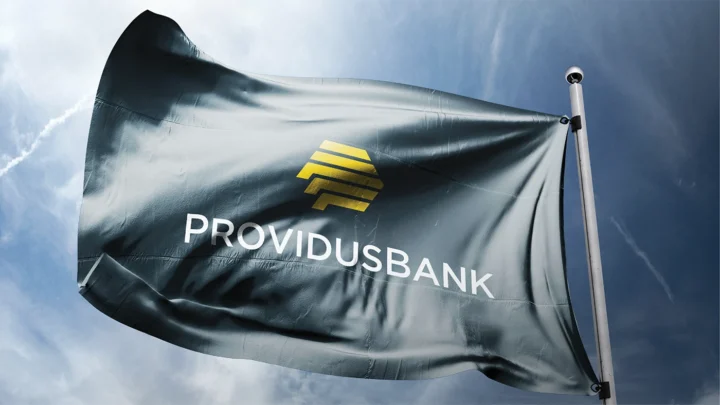The Nigerian banking landscape is about to undergo one of its most significant transformations in years, as Providus Bank and Unity Bank move to combine into a single, strengthened financial institution. Shareholders of Unity Bank overwhelmingly approved the merger in a court-ordered meeting on September 26, 2025, setting in motion the dismantling of Unity Bank as an independent entity and the creation of a larger, more competitive bank.
Under the agreed terms, Unity Bank shareholders were presented with two options: accept a cash payout of ₦3.18 for each share they currently hold, or exchange every 17 Unity Bank shares for 18 shares in Providus Bank. If the deal gets full regulatory and legal backing, Unity Bank’s entire asset base, liabilities, and business operations will be absorbed into Providus Bank. Unity Bank will be dissolved without winding up once Providus Bank’s certificate of incorporation becomes that of the merged entity.

A pivotal moment in the merger came just before the vote when the Asset Management Corporation of Nigeria (AMCON) sold its 34.22 percent stake in Unity Bank in a major off-market transaction. Over four billion shares moved hands at ₦1.66 each, a transfer that analysts view as consolidating Providus Bank’s influence in the merged institution.
The Central Bank of Nigeria (CBN) has been a strong supporter of the merger from early on, approving in August 2024 a ₦700 billion bailout to help Unity Bank meet recapitalization needs and ensuring stability for the merged entity. The financing structure was designed not only to clear Unity Bank’s outstanding obligations but also to provide longer-term strength via investment and bond obligations.
With the merger now approved, the combined institution—tentatively to be called Providus-Unity Bank (PUB)—will command a significantly expanded reach. Unity Bank’s extensive branch network, present in all 36 states and the Federal Capital Territory, complements Providus’ newer, digital-first banking model. Analysts expect that this depth in physical presence plus a modern digital backbone will equip PUB to compete more aggressively in retail banking, small and medium-sized enterprise (SME) lending, and local market penetration.
Despite the excitement, risks and challenges abound. Integration of operations, technology platforms, staff, and corporate cultures must be managed carefully to avoid disruption. Unity Bank has legacy systems, regulatory histories, non-performing assets, and customer expectations to reconcile with Providus Bank’s more modern and tech-driven approach. Ensuring that service quality and customer trust are maintained during the transition will be crucial.
Regulation and capital adequacy are core drivers of the merger. The CBN’s push for stronger banks under its recapitalization framework—requiring higher minimum capital for national banking licenses—has made consolidation almost inevitable in many quarters. This merger is the first major bank combination since Access Bank’s acquisition of Diamond Bank in 2019, and is being closely watched as a test case for how mergers can help stabilize weaker institutions and raise the bar for financial strength.
For Unity Bank shareholders choosing between cash or share swap, the cash option offers immediate liquidity, especially since Unity has endured share suspension and financial stress. The share swap, on the other hand, presents longer-term upside if the merged entity succeeds in scaling operations, controlling costs, and delivering modern banking services that combine Providus’ efficiency with Unity’s branch coverage.
The regulatory environment will continue to be critical. Final approvals from the Securities and Exchange Commission and continued oversight by the CBN will determine whether this merger achieves its promises. Market analysts and investors will be watching whether PUB can satisfy requirements like strong capital adequacy, low non-performing loan ratios, robust governance, and efficient systems integration.
In terms of competition, the arrival of the enlarged Providus-Unity Bank foreshadows a more intense fight among Nigeria’s banks. The merged bank’s scale should allow it to compete more favorably with larger incumbents, especially in underserved northern regions where Unity Bank has historically had deep penetration. For customers, this may translate into better access, broader networks, and potentially improved products. For some smaller banks, however, the enlarged player will pose new competitive threats.
The macroeconomic context also matters. Nigeria’s financial sector has been under pressure from inflation, currency volatility, and regulatory changes. A bank with a larger balance sheet, more diversified earnings, and digital capability is better placed to absorb shocks. Observers see Providus-Unity as potentially more resilient in such conditions. Whether that resilience will translate to lower costs, better lending, or stronger profitability remains to be seen.
Overall, the merger of Providus and Unity Bank marks a landmark moment in Nigeria’s ongoing wave of banking consolidation. It reflects broader trends: regulatory tightening, recapitalization mandates, and a market that rewards scale, efficiency, and innovation. If PUB delivers on its promise, it could reset competitive dynamics, raise the bar for weaker banks, and reshape how banking services are delivered across the country. If it falters, it will be a cautionary tale about the pitfalls of combining different institutions under pressure. Either way, it will leave a significant mark on Nigeria’s financial history.
Support InfoStride News' Credible Journalism: Only credible journalism can guarantee a fair, accountable and transparent society, including democracy and government. It involves a lot of efforts and money. We need your support. Click here to Donate
